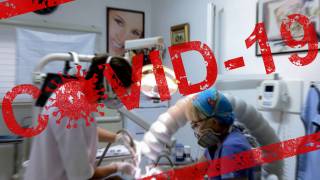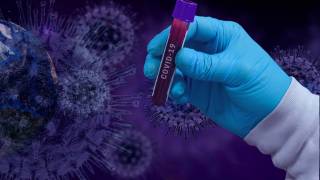Vaccine Candidate Heads Into Phase 3 Study

An interim analysis of the open-label Phase 1 study of the mRNA-1273 vaccine candidate published in the NEJM evaluated a 2-dose vaccination schedule and found positive results.
Study participants in the initial dose cohorts who received both vaccinations and were evaluated at pre-specified timepoints show the mRNA-1273 vaccine induced rapid and strong immune responses against SARS-CoV-2.
mRNA-1273 was generally safe and well-tolerated, with no serious adverse events reported through Day 57.
Summary results from this analysis were published by Moderna, Inc. on July 14, 2020, which are highlighted below.
mRNA-1273 induced binding antibodies to the full-length SARS-CoV-2 Spike protein (S) in all participants after the first vaccination, with all participants seroconverting by Day 15.
Dose-dependent increases in binding titers were seen across the three dose levels, and between prime and boost vaccinations within the dose cohorts.
After two vaccinations, at Day 57, geometric mean titers exceeded those seen in convalescent sera obtained from 38 individuals with confirmed COVID-19 diagnosis.
Of the 38 individuals in the convalescent sera group, 15% were classified as having severe symptoms, 22% had moderate symptoms and 63% had mild symptoms.
Neutralizing activity was assessed in two different assays, a live SARS-CoV-2 plaque-reduction neutralization test (PRNT) and a pseudovirus neutralization assay (pseudotyped lentivirus reporter single-round-of-infection neutralization assay, PsVNA).
No participants had detectable live SARS-CoV-2 virus neutralization or PsVNA responses prior to vaccination.
After two vaccinations, mRNA-1273 elicited robust neutralizing antibody titers.
At Day 43, neutralizing activity against SARS-CoV-2 (PRNT80) was seen in all evaluated participants. At the Phase 3 selected dose of 100 µg, the geometric mean titer levels were 4.1-fold above those seen in reference convalescent sera (n=3).
After the second vaccination, PsVNA neutralizing antibody titers were detected in all participants in all dose cohorts.
The Day 57 geometric mean titers at the 100 µg dose were 2.1-fold higher than those seen in convalescent sera (n=38).
Strong correlations were observed between the binding and neutralization assays, and between the live virus and pseudovirus neutralization assays.
A clear dose-response was seen in geometric mean titers between the 25 µg and 100 µg dose levels, with minimal additional increases at the 250 µg dose.
T-cell responses were also evaluated at the 25 µg and 100 µg dose levels. Following second vaccination, mRNA-1273 elicited Th1-biased CD4 T-cell responses without significant elevation of Th2-biased CD4 T-cell responses.
Evaluation of the durability of immune responses is ongoing, and participants will be followed for one year after the second vaccination, with scheduled blood collections throughout that period.
“These Phase 1 data demonstrate that vaccination with mRNA-1273 elicits a robust immune response across all dose levels and clearly support the choice of 100 µg in a prime and boost regimen as the optimal dose for the Phase 3 study,” said Tal Zaks, M.D., Ph.D., Chief Medical Officer of Moderna, in a press statement.
“We look forward to beginning our Phase 3 study of mRNA-1273 this month to demonstrate our vaccine’s ability to significantly reduce the risk of COVID-19 disease.”
The Phase 3 study protocol has been reviewed by the U.S. Food and Drug Administration (FDA) and is aligned to recent FDA guidance on clinical trial design for COVID-19 vaccine studies.
The randomized, 1:1 placebo-controlled trial is expected to include approximately 30,000 participants at the 100 µg dose level in the USA.
Moderna is working closely with Operation Warp Speed (OWS) and the NIH, including NIAID’s COVID-19 Prevention Trials Network, to conduct the Phase 3 COVE study.
With the Phase 3 dose being finalized at 100 μg, the Company remains on track to be able to deliver approximately 500 million doses per year, and possibly up to 1 billion doses per year, beginning in 2021 from the Company’s internal U.S. manufacturing site and strategic collaboration with Lonza.
In addition, Moderna recently announced a collaboration with Catalent for large-scale, commercial fill-finish manufacturing of mRNA-1273 at Catalent’s biologics facility in Indiana.
Funding from the Biomedical Advanced Research and Development Authority (BARDA), a division of the Office of the Assistant Secretary for Preparedness and Response (ASPR) within the U.S. Department of Health and Human Services (HHS), partially supported the planning for the Phase 2 and Phase 3 studies of mRNA-1273 and is supporting the execution of these studies, as well as the manufacturing process scale-up of mRNA-1273.
Moderna will also fund costs required to complete the development of mRNA-1273 including portions of the Phase 3 study and the scale-up of manufacturing capacity at the final established dosage in order to obtain licensure for mRNA-1273.
Furthermore, this study was led by the National Institute of Allergy and Infectious Diseases (NIAID), part of the NIH.
Precision Vaccinations publishes vaccine development news.
Our Trust Standards: Medical Advisory Committee

























